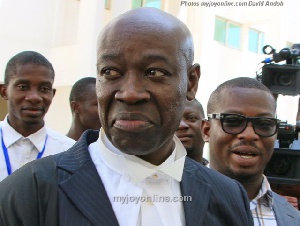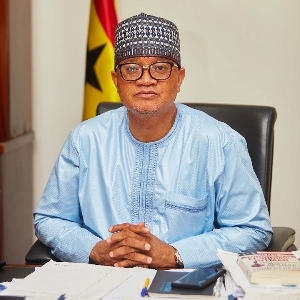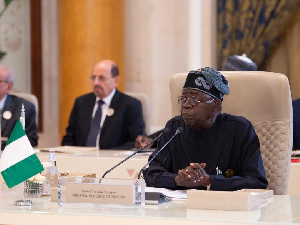There is no official record as to when organised football started in Nigeria. It is, however, believed that it started in the 40s with the formation of the football association in 1945.
Though, in all nook and crannies of the country, football is played by kids in any available space using any round object as long that it won’t hurt the legs.
After independence in 1960, the country has won several international trophies both at club and international level. Shooting Stars won the country’s maiden club championship in 1976 before Rangers International retained the trophy the following year.
Enyimba of Aba won the CAF champions League for the country in 2003 and retained it the following year. However, since then the country’s clubs have performed abysmally at the continental level, failing to achieve any success.
It was in 1976 that the Super Eagles won their first medal winning bronze at the Africa Cup of Nations in Ethiopia.
Two years later the team retained the bronze in Ghana before winning the Nations Cup for the first time as host in 1980.
Nigeria won the title again in 1994 and 2013. The Super Eagles qualified for their first World Cup in 1994 and also qualified for the global showpiece in 1998, 2002, 2010, 2014 and on the verge of qualifying for their sixth World Cup.
Golden Eaglets are the most successful team at the FIFA U-17 World Cup having won it a record five times-1985, 1993, 2007, 2013 and 2015.
The country was the first African team to win the football Olympics gold medal in football, a feat they achieved at the Atlanta Olympics in 1996.
Despite all the successes enumerated above, ex-international, Jonathan Akpoborie, in an interview with Sunday INDEPENDENT, described Nigerian football as all nonsense.
“Our football, from the U17 to the Super Eagles and our league, from the lowest to the top is all nonsense. Looking at what (football) we have here in the country, it is nonsense; absolute nonsense and that is the truth of the matter.”
While some Nigerians will take the former Wolfsburg of Germany forward to the guillotine for ‘desecrating’ Nigerian football, the recent showing of the Home Eagles in the just-concluded West Africa Football Union (WAFU) Cup in Ghana might have did much to justify Akpoborie’s position.
The team started the WAFU championship beating Sierra Leone 2-0 and followed that up with two barren draws against Mali and Guinea.
The latter results made their final group match against the host, Ghana, a must-win one. They never disappointed afwinning 2-0 to set up a semi-final clash with Benin Republic that they won 1-0.
But the result against the Black Stars didn’t come without issues as many Nigerians believed that the Home Eagles won because Ghana fielded a second team having not only qualified for the semis and that the result of the match will not affect them in anyway.
In the final on Sunday, the concern expressed by Nigerians on the 2-0 win over the Black Stars, was confirmed. The Super Eagles were not only walloped 4-1.
Those, who believed that the Nigerian team’s 2-0 win over their archrival earlier in the group match was a fluke, were justified.
On the surface, the Super Eagles might have performed well reaching the final of the WAFU Cup but their records on the road left unbiased analysts asking whether we have truly come of age in our football league.
According to Etim Esin, who spoke to INDEPENDENT, the Home Eagles would have made their way home earlier in the championship if Ghana’s semi-final qualification was dependent on that last group match.
“Through the way they played in the final, I am very sure that Ghana would have eliminated us if they needed that match in which we beat them 2-0. It was unfortunate that our league cannot produce players who can stand their own,” he said.
This position was echoed by Segun Odegbami earlier during recent interviews with INDEPENDENT.
“Where are the players? If they are there, he (Gernot Rohr) will use them,” Odegbami said in an earlier interview.
“We have been hearing of use the players in the local league but the question is where are they? Truth be told, there is little or nothing the league can afford the national team right now,” he said
On his own, Akpoborie said: “They said that we are not developing talents in the country. How do you want to develop talents with the kind of our league?
“I watched our national league sometimes on television and I looked at the pitches and I asked myself who will want to play on such surface. Even when I was in Nigeria playing, I would not try such,” he said.
On his own, while writing off the domestic league, Kojo Williams, former NFF boss, warned that something drastic needed to be done to salvage the situation.
“There is nothing to write home about in the league. It is very, very poor.”
“I have said so in the past and I still maintain it, the league is very poor.”
“We have to do something about the league, I don’t want to be seen as being antagonistic, but the truth must be said,” he said.
Reflectively, in the African Nations Championship (CHAN), a biannual competition, which the Confederation of Africa Football (CAF) introduced for players playing in their domestic leagues, the home-based Super Eagles have also been found wanting.
In its fourth edition but going into the fifth edition next year, the best the Nigerian second-tier national team has achieved was a third-place finish, attained at the 2014 edition in South Africa.
This is even as DR Congo has won the championship twice, while Tunisia and Libya have also taking the winners’ medal in the tourney.
Meanwhile, the poor performance of the WAFU Eagles merely reflected the damaging situation of the Nigerian league, the cradle of the Nigerian football.
First, to say that the domestic league players are poorly remunerated is stating the obvious. But for a couple of clubs, if any at all, the players in the nation’s premier football league are owed salaries and allowances for upwards of one year.
Hence many players have retired prematurely form treatable injuries due largely to the absence of medical insurance for them.
Couple with all these is the league’s poor structure where teams travel thousands of kilometers in very bad roads to honour away matches. This is not even mentioning the very poor playing surfaces that litter all the states in the country.
The problems are not helped by the ownership structure of the domestic league clubs, which has been the bane of football development in Nigeria. There is no place in the world that the organisation of football leagues is left in the hands of the government.
Government has the duty to provide enabling environment with emphasis on infrastructure and security for private hands to step in.
But in Nigeria, football clubs’ ownership has been left in the hands of politicians, who have made the game’s development their least priority, thereby relegating the league to more of a decrepit recreation than a business and entertainment, which it should be.
In the advanced climes, the main beneficiaries of a football league organisation remain the players, who are the real actors and stakeholders. But the rule has been turned upside down in Nigeria with the administrators, especially the various state governors, using the platform presented by the game as a veritable tool to advance both their real and imagined achievements.
No wonder every upcoming player in the league will have his eyes firmly fixed on going abroad, even to some obscure countries where the game is hardly heard.
Consequently, the aforementioned developments have led to the Nigeria Football Federation (NFF) resorting to foreign players of Nigerian descent for Super Eagles matches, whereas in the past, home-based players formed a reasonable pool of national team players.
For example, at the height of the nation’s football rating by FIFA, which occurred in April 1994, where the Super Eagles were ranked fifth best national team in the world, players in the domestic league were part of the history.
On the strength of the issues advanced above and so many others unmentioned, it can be conclusively said that Akpoborie, who has seen it all as far as football is concerned, might be right in his assertion.
Among the reasons advanced above, the domestic league has ceased to be live on television after pay station, Supersport, pulled out of the arrangement due to issues with the League Management Company (LMC), the organizers of the domestic football.
Sports Features of Sunday, 1 October 2017
Source: ghanasoccernet.com

















